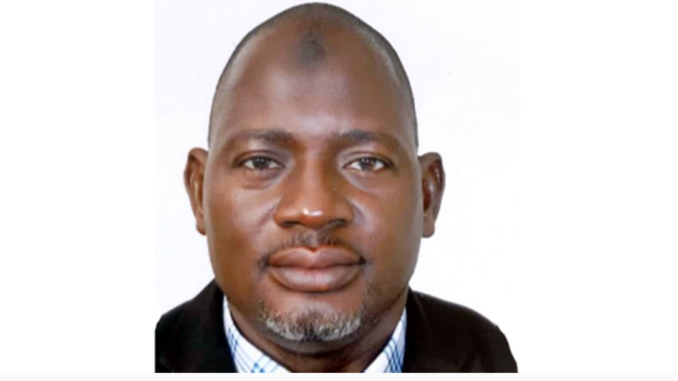
MUHAMMAD Nami, the Executive Chairman of the Federal Inland Revenue Service, resorted recently to appealing to state-run revenue generating agencies to remit funds to the government as stipulated by law. This epitomises the Nigerian government’s seeming helplessness in enforcing constitutional provisions and extant financial regulations guiding Ministries, Departments and Agencies on remittance of revenues. It has denied the treasury of trillions of naira. Such insufferable ineptitude should give way to strict collection of all due revenues, recovery of outstanding funds and punishment of offenders.
It is amazing that despite the long-running pressure on public revenues that has inhibited infrastructure spending, prompted massive borrowing and recurring deficits, the Federal Government telegraphs ineptitude in recovering its revenues from its own agencies. In Nami’s appeal, made in Abuja when he received a delegation from Niger State, he urged federal and state MDAs to desist from spending money they generated, without first remitting it to the government purse. “The practice whereby MDAs spend the revenue generated and only send what is left or their surplus to the federation accounts hinders national development plans. The best practice is for the internally generated revenues to be remitted in total to the Federation Account first. This should include their statutory share of the collected revenue. The total amount due to them will still come back to them through budgetary provisions,” he explained.
This should have been an argument in a court of law against the recalcitrant MDA heads. Unfortunately, it has been complaints all the way. In May 2018, the President, Major General Muhammadu Buhari (retd.), grumbled that 15 federal revenue-generating agencies failed to remit N8.1 trillion to the Federation Account between 2010 and 2015, citing an audit report commissioned by the National Economic Council.
By December of that year, Ben Akabueze, Director-General of the Budget Office of the Federation, estimated un-remitted operating surpluses from state-owned enterprises and regulatory agencies at about N10 trillion. Major defaulters were the Petroleum Products Pricing Regulatory Agency with over N1.3 trillion withheld; the Central Bank of Nigeria (N801.2 billion); Nigeria Ports Authority (N192.1 billion); Nigerian Maritime Administration and Safety Agency (N66.1 billion); Federal Airports Authority of Nigeria (N51.99 billion); Nigeria Postal Service (N37.7 billion), and Nigeria Communications Commission (N30.9 billion). The Nigerian National Petroleum Corporation is notorious for carrying on as it pleases.
The National Assembly, like the executive branch, beyond occasional headline-grabbing noisy barking at heads of the MDAs, has been foot-dragging in considering yearly reports of the Auditor-General for the Federation submitted to its two chambers and highlighting mind-boggling inappropriate charges on the public treasury.
Yet, total tax and non-tax revenue accruable to the government in 2017 was N9.27 trillion, according to data compiled by the Organisation of European Cooperation for Development, down from N11.22 trillion in 2014, but better than the N8.42 trillion collected in 2015 and N7.44 trillion of 2016. Such scanty revenues have compelled huge deficits, a borrowing binge with high debt servicing costs and lack of funding for critical infrastructure. Oil prices, already in free fall after a price war broke out between Saudi Arabia and Russia, have collided with the coronavirus-inspired global meltdown to hit their lowest level in 18 years, with the worst yet to come as most countries lock down their economies.
The government’s downward review of the 2020 budget anchor from $57 per barrel to $30pb is shaky as the benchmark crude averaged $22 to $25pb in the past week. Analysts forecast the N2.2 trillion deficit provision to climb to over N4 trillion in the short term. The external debt component, amounting to $27.67 billion of the total public debt of $84.05 billion by December 2019 is set to rise with a recent Senate approval of a further $22.7 billion in foreign loans.
The immediate response of the government, slashing capital spending by 20 per cent, is depressing for an economy ranked on the World Economic Forum’s Global Competiveness Index 2017 at 132 out of 138 countries on infrastructure adequacy. Only 16 per cent of Nigeria’s roads are paved, compared to 50 per cent average in the world’s lower middle income countries, according to the Pretoria, South Africa-based Institute for Security Studies, while the objectives of the National Integrated Infrastructure Master Plan approved in 2015 to transform the country by 2040, are being derailed by poor funding.
The Buhari regime can salvage its tattered change mantra by tightening the noose on revenue generating agencies, blocking all leakages and compelling strict adherence to remittance laws. Audit firms should be hired to look into how the defaulting MDAs have mismanaged public funds.
Akabueze has cited brazen violations of the Fiscal Responsibility Act 2007 by the MDAs just as the Nigeria Extractive Industries Transparency Initiative, in its regular reports, including the failure of the NNPC and other oil sector operators to remit $22.06 billion and N481 billion. Nigeria is probably the only country that refuses to collect its own money in spite of glaring revenue shortfalls and tolerates open defiance of its sovereign authority by foreign and local firms. The government appears helpless to enforce a Supreme Court judgement to collect unpaid revenue of about $62 billion from major oil companies. Recovering the money would have obviated the need for the $22.7 billion fresh foreign loan.
Government’s role is not to appeal, lament or simply move on when laws are broken and public funds withheld or mismanaged; it should enforce its writ decisively and punish defaulters accordingly. It should strengthen its surveillance, monitoring and oversight processes. Technology should be updated to reduce person-to-person transactions and facilitate payments in real time directly to government accounts.
To promote accountability and transparency, heads and boards of culpable agencies should be removed, investigated and, where found culpable, prosecuted. Ministers overseeing the MDAs should be tasked with ensuring compliance with revenue remittance rules and should be held responsible for default. Given the huge sums involved, the anti-graft agencies need to urgently set up active units dedicated to investigating un-remitted funds.
END

Be the first to comment